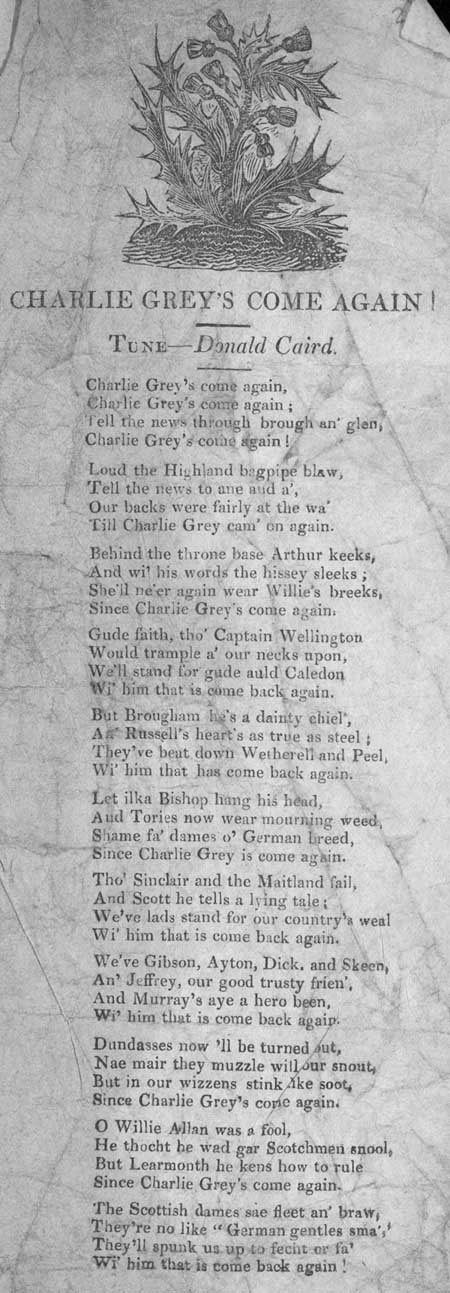Commentary
Verse 1: 'Charlie Grey's come again, / Charlie Grey's come again; / Tell the news through brough an' glen, / Charlie Grey's come again!' The broadside does not carry the name of its publisher, nor the place or date of publication. It is decorated with a woodcut of a thistle. 'Charlie Grey' is a reference to Earl Charles Grey (1764-1845), who became Whig Prime Minister in November 1830, and whose government was responsible for passing the Parliamentary Reform Bill of 1832. The song was clearly written by a Scottish supporter of Grey, and sings the praises of leading Scottish Whigs and Radicals of the period. Its references to bagpipes and glens indicate that it was inspired, ironically, by ballads written about the possible return of Bonnie Prince Charlie, the most famous of which was 'Will Ye No' Come Back Again?' The irony is that the Whigs were the traditional opponents of the Jacobites. Early ballads were dramatic or humorous narrative songs derived from folk culture that predated printing. Originally perpetuated by word of mouth, many ballads survive because they were recorded on broadsides. Musical notation was rarely printed, as tunes were usually established favourites. The term 'ballad' eventually applied more broadly to any kind of topical or popular verse.
View Transcription | Download PDF Facsimile
|
 |
Probable period of publication:
1830-1840 shelfmark: L.C.Fol.178.A.2(210)
 View larger image
View larger image
|


